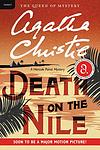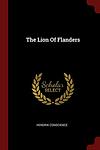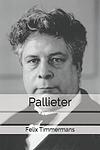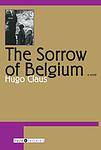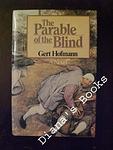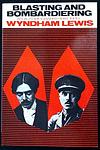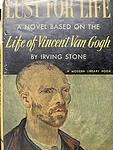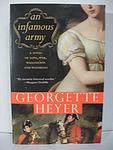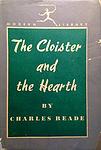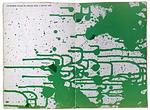The Greatest "Belgium" Books of All Time
Click to learn how this list is calculated.
This list represents a comprehensive and trusted collection of the greatest books. Developed through a specialized algorithm, it brings together 284 'best of' book lists to form a definitive guide to the world's most acclaimed books. For those interested in how these books are chosen, additional details can be found on the rankings page.
Genres
Countries
Date Range
Reading Statistics
Click the button below to see how many of these books you've read!
Download
If you're interested in downloading this list as a CSV file for use in a spreadsheet application, you can easily do so by clicking the button below. Please note that to ensure a manageable file size and faster download, the CSV will include details for only the first 500 books.
Download-
1. Austerlitz by W. G. Sebald
The novel follows the story of Jacques Austerlitz, an architectural historian who was brought to England on a Kindertransport from Czechoslovakia during World War II. As an adult, Jacques embarks on a journey to uncover his past, including his original identity, his parent's fate, and his own lost history. The narrative is a haunting exploration of memory, identity, and the lasting impact of the Holocaust.
-
2. Cloud Atlas by David Mitchell
This novel is a unique blend of six different stories, each set in a different time and place, spanning from the 19th century South Pacific to a post-apocalyptic future. Each tale is written in a different style, reflecting the time and setting it represents, and they are all connected through shared themes and recurring motifs. The stories are nested within each other, with each interrupted by the next, only to be concluded in the second half of the book. The novel explores themes of predacity, civilization, reincarnation and the eternal recurrence of the same behaviors throughout history.
-
3. Parade's End by Ford Madox Ford
The novel chronicles the life of Christopher Tietjens, an officer in the British Army during World War I, and his complex relationships with two women: his adulterous wife Sylvia and a young suffragette named Valentine. The story is set against the backdrop of a changing society and the devastation of war, exploring themes of duty, honor, and the struggle between traditional values and modernism.
-
4. The Guns of August by Barbara Tuchman
"The Guns of August" is a detailed and engaging account of the first month of World War I. The book explores the events leading up to the war, the political and military strategies of the various countries involved, and the critical decisions that shaped the course of the conflict. It presents a vivid picture of the war's early stages, highlighting the miscalculations, miscommunications, and misunderstandings that led to one of the most devastating wars in history.
-
5. Villette by Charlotte Bronte
The novel follows the life of Lucy Snowe, a young Englishwoman with no family or prospects, who moves to the fictional French town of Villette to teach at a girls' school. As she navigates her new life, she becomes entangled in a love triangle with a fiery professor and a charismatic doctor. The story explores themes of isolation, independence, and the constraints of societal expectations for women.
-
6. The Great War and Modern Memory by Paul Fussell
"The Great War and Modern Memory" is a critical analysis of the impact of World War I on the English society and culture. The author explores the war's influence on literature, language, and symbolism, arguing that the horrific experiences of the war drastically altered public perception and understanding of conflict, honor, and heroism. The book combines literary criticism, history, and social commentary to provide a comprehensive examination of the war's lasting effects on the collective memory of the English-speaking world.
-
7. The Flanders Road by Claude Simon
The novel delves into the complexities of memory and the chaos of war, weaving together the narratives of several characters whose lives are entangled by the events of World War II. Set against the backdrop of the German invasion of France, the story unfolds through a series of flashbacks and stream-of-consciousness reflections, primarily focusing on a French cavalry officer captured by the Germans. As the characters grapple with their experiences and relationships, the book explores themes of loss, betrayal, and the elusive nature of truth, all while challenging traditional narrative structures with its fragmented and non-linear approach to storytelling.
-
8. Cheese by Willem Elsschot
The novel revolves around a Dutchman living in Antwerp, Belgium, who is persuaded by his brother to enter the cheese business. He invests in 10,000 full-cream cheeses and sets up an office, but struggles to sell any of his stock. As he grapples with the nuances of the cheese trade, his personal life and professional relationships also begin to crumble, leading to a series of comical and tragic events. The book is a satirical commentary on business, ambition, and the absurdity of life.
-
9. Death On The Nile by Agatha Christie
"Death On The Nile" is a thrilling murder mystery set aboard a luxurious Nile river cruise. When a young and beautiful heiress is found dead, renowned detective Hercule Poirot must navigate a web of deceit, jealousy, and hidden motives to uncover the truth behind her untimely demise. As the suspects become increasingly desperate to protect their secrets, Poirot races against time to solve the puzzle before the killer strikes again.
-
10. The Lion of Flanders by Hendrik Conscience
"The Lion of Flanders" is a historical novel set in the 14th century, during the Battle of the Golden Spurs in Flanders. The story revolves around the struggle of the Flemish people against French oppression, with a particular focus on the life of the main character, a brave knight. The novel is recognized for its vivid depiction of the battle and the spirit of nationalism, making it an important piece of Flemish literature.
-
11. Pallieter by Felix Timmermans
"Pallieter" is a classic Flemish novel that depicts the life of a jovial and life-loving man, Pallieter, who lives in harmony with nature in a small Belgian town. The story showcases his love for the simple pleasures of life, his interactions with the townsfolk, and his deep connection with the natural world. However, when industrialization threatens his idyllic lifestyle, Pallieter decides to leave his beloved town. The novel is a celebration of life and nature, while also exploring the impact of industrialization on rural life.
-
12. The Sorrow of Belgium by Hugo Claus
"The Sorrow of Belgium" is a coming-of-age story set against the backdrop of World War II. The narrative follows the life of a young boy in a Flemish town, as he navigates through the complexities of adolescence, family relationships, and the harsh realities of war. The novel provides an insightful exploration of Belgian history, culture, and the nation's struggle under the Nazi occupation, all through the eyes of the protagonist.
-
13. Checkmate by Dorothy Dunnett
This novel is the climactic conclusion to a historical fiction series set in the mid-16th century, weaving together the intricate tales of political and personal intrigue across Europe. The story follows the journey of a charismatic and enigmatic protagonist, a master of disguise and strategy, as he navigates the treacherous waters of international politics, warfare, and personal vendettas. His quest for redemption and his complex relationships, including a tumultuous romance, drive the narrative towards a dramatic finale. The book combines rich historical detail with a deep understanding of human nature, showcasing the protagonist's ultimate challenge in a game of power, loyalty, and love.
-
14. The Parable of the Blind by Gert Hofmann
"The Parable of the Blind" is a darkly comedic novel that follows six blind men who are hired to pose as models for a famous painter's depiction of a biblical parable. As they journey to the painter's studio, they struggle with their dependence on each other and the outside world, grappling with the limitations and challenges of their blindness. The narrative explores themes of human vulnerability, the nature of perception, and the absurdity of existence.
-
15. Blasting And Bombardiering by Wyndham Lewis
This book is an autobiographical account that blends sardonic wit with vivid descriptions of the author's experiences during the first half of the 20th century, particularly focusing on his time serving as an artillery officer during World War I. It offers a trenchant critique of modern warfare and the cultural shifts of the era, as well as an inside look at the author's involvement with the avant-garde art and literary movements of the time. The narrative is characterized by its acerbic humor, intellectual rigor, and the author's distinctive perspective on the chaos and transformation that defined the early decades of the twentieth century.
-
16. Lust For Life by Irving Stone
This novel is a vivid portrayal of the tumultuous and passionate life of a renowned post-impressionist painter. It delves deeply into his struggles with poverty, mental illness, and a largely unappreciated genius during his lifetime. The narrative is rich with the artist's fervent desire to capture the essence of life and beauty through his revolutionary art, despite facing rejection and misunderstanding from those around him. Through a blend of factual research and imaginative interpretation, the book brings to life the painter's intense relationships, his bouts of fervor and despair, and his relentless pursuit of artistic innovation and expression, offering readers a compelling insight into the soul of a man who transformed pain and tragedy into some of the world's most beloved works of art.
-
17. The Military Philosophers by Anthony Powell
This novel, part of a larger series, delves into the intricacies of British society during World War II, seen through the eyes of its protagonist, who navigates the complexities of military bureaucracy and the shifting social landscape. Set against the backdrop of significant historical events, the narrative explores themes of power, change, and the enduring nature of human connections. Through his encounters with a wide array of characters, from high-ranking officials to eccentric peers, the protagonist's journey reflects on the impact of war on personal and collective identities, offering a nuanced examination of the era's moral and philosophical dilemmas.
-
18. An Infamous Army by Georgette Heyer
Set against the backdrop of the Battle of Waterloo, this historical novel weaves a tale of love, valor, and the complexities of war. Through the eyes of its characters, it explores the lives of British aristocrats who find themselves entangled in the events leading up to and during the infamous battle. The narrative not only delves into the strategies and turmoil of warfare but also paints a vivid picture of the social intricacies and romances of the time. Combining meticulous historical detail with a compelling love story, the book offers a rich exploration of a pivotal moment in European history, highlighting both the heroism and the human cost of conflict.
-
19. The Abandoned Baobab by Ken Bugul
The book is a poignant autobiographical novel that delves into the life of a young African woman who feels disconnected from her roots and culture after returning from studies in Europe. Struggling with a sense of alienation and identity crisis, she spirals into a life of excess and despair in the city, seeking solace in relationships and substances. Her narrative is a raw and honest exploration of postcolonial identity, womanhood, and the search for meaning in a world where she feels like an outsider both in her home country and abroad. The title symbolizes her sense of abandonment and the deep longing for a sense of belonging and understanding.
-
20. The Cloister and the Hearth by Charles Reade
Set in the 15th century, this historical novel tells the story of a young Dutch artist named Gerard Eliassoen, who abandons his lover, Margaret, and their children to become a Dominican friar, while she, believing him dead, becomes a nun. The narrative follows Gerard's adventures across Europe, his struggles with his faith, and his eventual reunion with Margaret. The novel explores themes of love, faith, and duty, and provides a vivid depiction of medieval life.
-
21. The Folding Star by Alan Hollinghurst
"The Folding Star" by Alan Hollinghurst is a captivating novel that follows the life of a young Englishman named Edward Manners who moves to Belgium to become a language tutor. As he immerses himself in the local culture, Edward becomes infatuated with one of his students, a 17-year-old boy named Luc. The novel explores themes of obsession, desire, and the complexities of relationships, as Edward's infatuation leads him down a path of self-discovery and ultimately reveals the dark secrets of his own past.
-
22. Mémoires by Philippe de Commynes
"Mémoires" is a seminal work of French literature, providing a detailed account of late medieval European politics from the perspective of a diplomat and historian who served various masters, including the Dukes of Burgundy and the French king Louis XI. The author offers a rich narrative of the power struggles, diplomatic maneuvers, and courtly intrigues of his time, while also reflecting on the nature of governance, the ethics of leadership, and the unpredictability of fortune. His observations and analyses have made the work an invaluable resource for understanding the political and social dynamics of 15th-century Europe, as well as a pioneering example of political memoir.
-
23. Egmont by Johann Wolfgang von Goethe
"Egmont" is a tragic play set in the 16th-century Spanish-occupied Netherlands, focusing on the life of a nobleman who becomes a hero among the Dutch people for his resistance against the oppressive Spanish rule. The protagonist's political and romantic involvements lead him into conflict with the Spanish authorities, culminating in his arrest and execution. Despite his tragic end, his sacrifice becomes a symbol of national resistance and inspires a successful uprising against the foreign dominators. The play explores themes of freedom, tyranny, and the personal costs of political engagement, blending historical drama with romantic elements.
-
24. Chronicles by Jean Froissart
The book in question is a historical narrative that provides a detailed account of the events, politics, and warfare of the 14th century, particularly focusing on the Hundred Years' War between England and France. The author, a medieval French chronicler, compiled extensive anecdotes, interviews, and reports, offering readers a vivid portrayal of the chivalric age, the lives of nobility, the impact of battles, and the social and political dynamics of the time. His work is considered one of the most important primary sources for the period it covers, offering a blend of factual history and the author's own interpretations and biases, reflecting the complex tapestry of medieval European society.
-
25. A Long Long Way by Sebastian Barry
This novel vividly captures the harrowing experiences of a young Irish soldier caught in the brutal trenches of World War I. As he navigates the horrors of war, he also grapples with the complex political tensions of his homeland, torn between loyalty to the British forces and the rising call for Irish independence. Through his journey, the protagonist confronts the brutal realities of conflict, the bonds of camaraderie, and the personal quest for identity amidst the chaos of war and the shifting landscapes of early 20th-century Ireland. The narrative combines historical detail with profound emotional depth, exploring themes of loyalty, identity, and the devastating impact of war on the human spirit.
Reading Statistics
Click the button below to see how many of these books you've read!
Download
If you're interested in downloading this list as a CSV file for use in a spreadsheet application, you can easily do so by clicking the button below. Please note that to ensure a manageable file size and faster download, the CSV will include details for only the first 500 books.
Download







